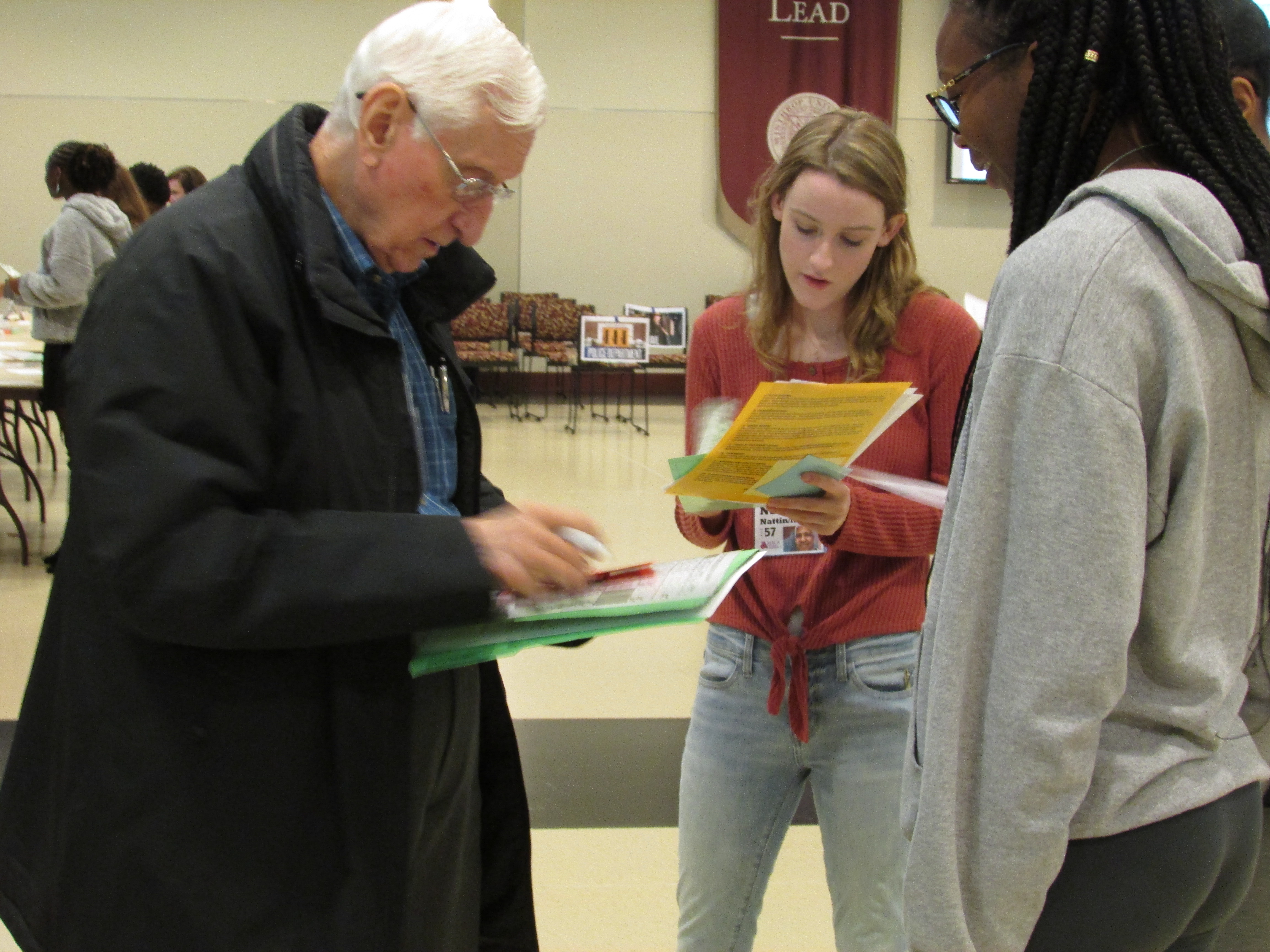For those living in poverty, there are many difficult decisions involving money and their daily lives that need to be made. Many people have said that they do not understand this reality that 11 percent of York County faces.
Walk a Mile in Someone’s Shoes, a poverty simulation, was held on Nov. 14 as part of the National Hunger and Homelessness Awareness Week.
People were given an identity, for the “month”, a forty-minute period split up into ten-minute “weeks.” Participants would assume that identity and try to live in poverty.
They had to attempt to stay alive make it out of poverty by the end of the month. Identities ranged from children to retirees.
Some participants were also sorted into families while others were single person households. Each group had a budget, a set income and requirements that needed to be fulfilled.
Around the room were tables that represented various resources available to use. Social services, a bank, a grocery store, a pawn shop, a community action group and health services were a few of the resources that participants could utilize. There was also a jail and homeless shelter that participants could wind up in.
The simulation was designed to be as close to reality as possible. If bills were not paid on time, families were evicted. If you were late to work, even by a minute, you were penalized.
Laylah Chisolm, a freshman theatre education major, was given the role of a teenager that was lost in the system. Chisolm had run ins with a drug dealer and ended up in jail.
Through it all, Chisolm said that she never received assistance to help get out of the cycle of drugs and poverty. She said that this helped make her more aware of youth in similar situations, a skill that she said will help her as an educator.
“I realized that, being an educator, that’s something to look out for, students who have that difficulty of wanting to find how to get through life. It’s hard when they don’t have the parent figures at home to help push them where they need to go,” Chisolm said.
Katy Motsinger played the part of a mortgage and rent controller in the simulation, a role that she said involved large amounts of interaction with participants.
“Turning over chairs to evict people was not fun, but in the reality of life, to some degree, people have to run a business and that’s how they choose to do it. Money matters sometimes and in the game you see it play out,” Motsinger said.
She said that it was eye-opening to see the roles that certain people can leave different impressions on others and create a negative or positive outcome of that person’s situation.
“Being on the other side, you have all the control. I think the biggest difference was you see that you have the ability to really impact someone’s life one way or the other. You can be a helper or a hindrance, and you can care or you can not care and that’s totally up to you,” Motsinger said.
Motsinger is the community resource director for the Children’s Attention Home in Rock Hill. The Children’s Attention Home houses and helps children who are in poverty and situations similar to those in this simulation. Motsinger said that being in social work made it harder to play her role.
“I wanted to be helpful, and say ‘well, yeah if you can give me most of it now, I’ll come back later,” and try and give people the benefit of the doubt when possible, but you have to watch it because sometimes you can’t trust people. Sometimes they’re trying to work the system,” Motsinger said.
Hannah Norton, a freshman political science major, said that the simulation made her more appreciative of her mother. Norton grew up in a single-parent household
“I grew up with a single parent home and for me it was just really eye-opening how much my own mother put on herself to keep us from having to deal with any of the issues going on within keeping up with bills, keeping up with the utilities and our house, it just showed me how much she had to sacrifice for her own children,” Norton said.
Grace Tristan, a freshman early childhood major, said that seeing the decisions that those in poverty have to make on a day to day basis were surprising.
“I know that I take for granted a lot of the things that I’m privileged to have, so this really helped open my eyes,” Tristan said.




